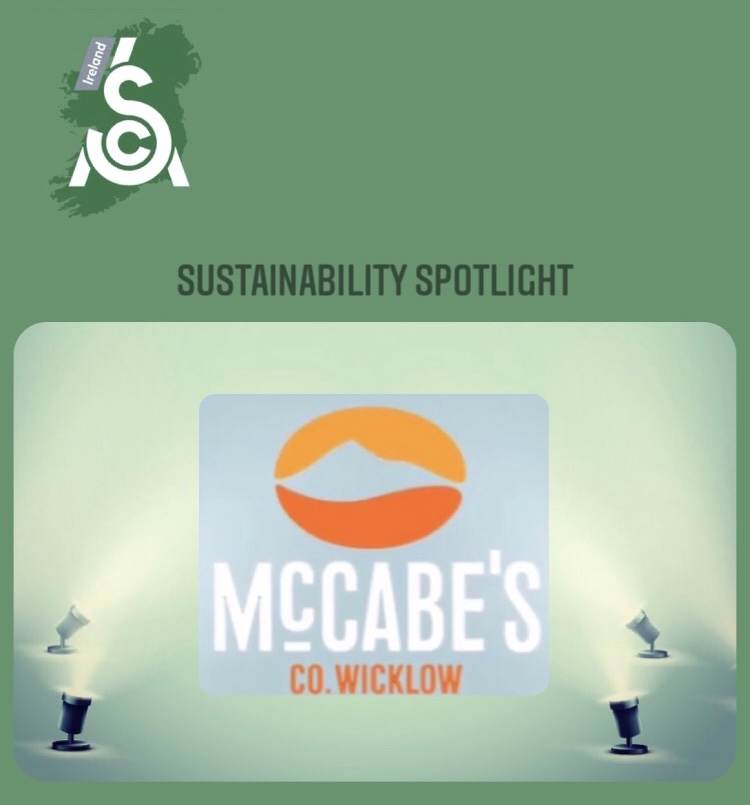
Sustainabilty Spotlight invites businesses within the SCA Ireland community to describe what sustainability looks like in their coffee space. In this, our first Sustainability Spotlight, we talked to Stephen, of McCabe’s Coffee.
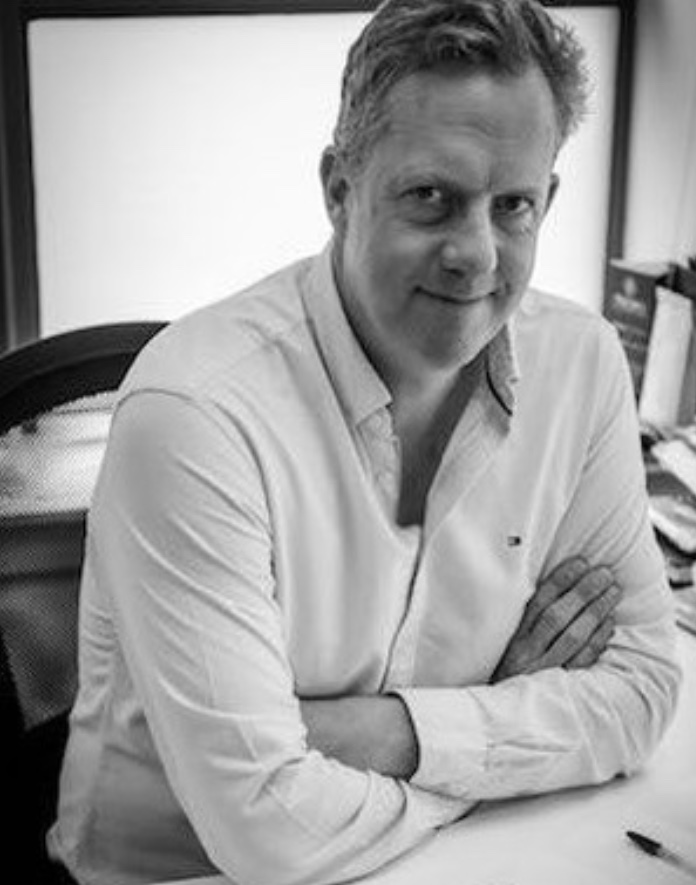
Stephen McCabe is MD of McCabe’s Coffee, a family roasting business started by his father, Clive, in 1995.
As a business that spans two generations, McCabe’s has seen many changes since the mid 90s. “The amount of coffee roasters, the amount of cafes, the interest in quality, the interest in presentation with latte art, it really has changed in so many ways”. Now situated in Newtownmountkennedy in Co. Wicklow, Stephen talked to us about how sustainability issues are prioritized at McCabe’s, and the practices in place at McCabe’s to minimise waste and reduce the carbon footprint across the entire business.
“If we take it right back to the farm, we’re looking for certified coffees, we’re looking for Fairtrade, Organic”. Looking at the farm as one of the ‘hotspots’ of harmful environmental impact [the other being the importing-country end of the industry], Stephen sees sourcing organic coffee as crucial to reducing the harmful impacts of using chemical fertilisers, and protecting biodiversity. To be able to see close up how the farms they buy operate, environmentally and socially, McCabe’s visit the farms they buy coffee from. “We like to meet the farmers to establish that relationship, so we know what’s behind the coffee, the people behind the coffee, how they’re dealing with water treatment on these farms, and how they are treating their workers, how much they’re being paid, and really building that relationship so we know it’s a sustainable product we’re getting”. Stephen describes how these close relationships allow them to look at a checklist before doing any trade, that includes looking at what the conditions are for the workers, wages, accommodation, health provisions and making sure there are no underage workers on the farm. “Over the years now we’ve built up some wonderful relationships going out to visit these farms, in Kenya, Costa Rica, India, and some have some really sustainable community solutions”. While these relationships are established with a farm visit, Stephen maintains the relationships and keeps his travel emissions down using the virtual tools of email and Zoom! McCabe’s have supported a co-op in Sumatra by paying for ten diesel pulpers, to reduce the amount of time spent and distance walked by workers during harvest.
Once the coffee comes into the country, there are opportunities to look at reducing harmful environmental impacts, and Stephen tells us that biogas, instead of natural gas is a change that McCabe’s are looking at for the future. Packaging is another point where they take the opportunity to reduce harmful impact. McCabe’s are, like every other roaster in Ireland, challenged by the limitations of Ireland’s waste management. “Unfortunately, the soft packaging can’t be recycled here, it’s incinerated. We came up with a solution where we teamed up with a company called Terracycle, and they recycle the plastic in the bags, they shred it down and remould it into plant pots and watering cans …long life plastic products so it gives them a new life”. The bags are collected and brought back to be baled and sent to Terracycle. Retail customers can also participate in this, McCabe;s, on request, send out zero-waste boxes that can be sent back once full, to be sent with the other pastic waste for recycling/upcycling by Terracycle.
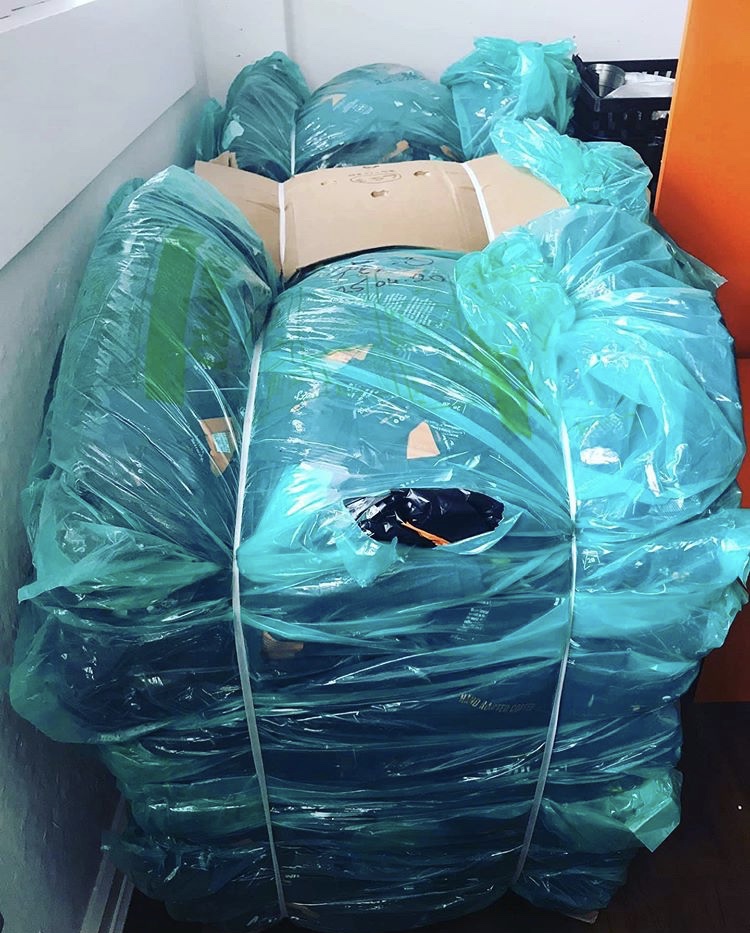
a bale of packaging ready to go to Terracycle
Stephen told us about a project for using the chaff that is a waste byproduct of the roasting process, whereby the local county council take the chaff and use it to create a natural compost that they use in parks in the area. The council also take the coffee sacks and wrap them round the base of trees to keep weeds at bay, instead of using poisonous weedkiller.
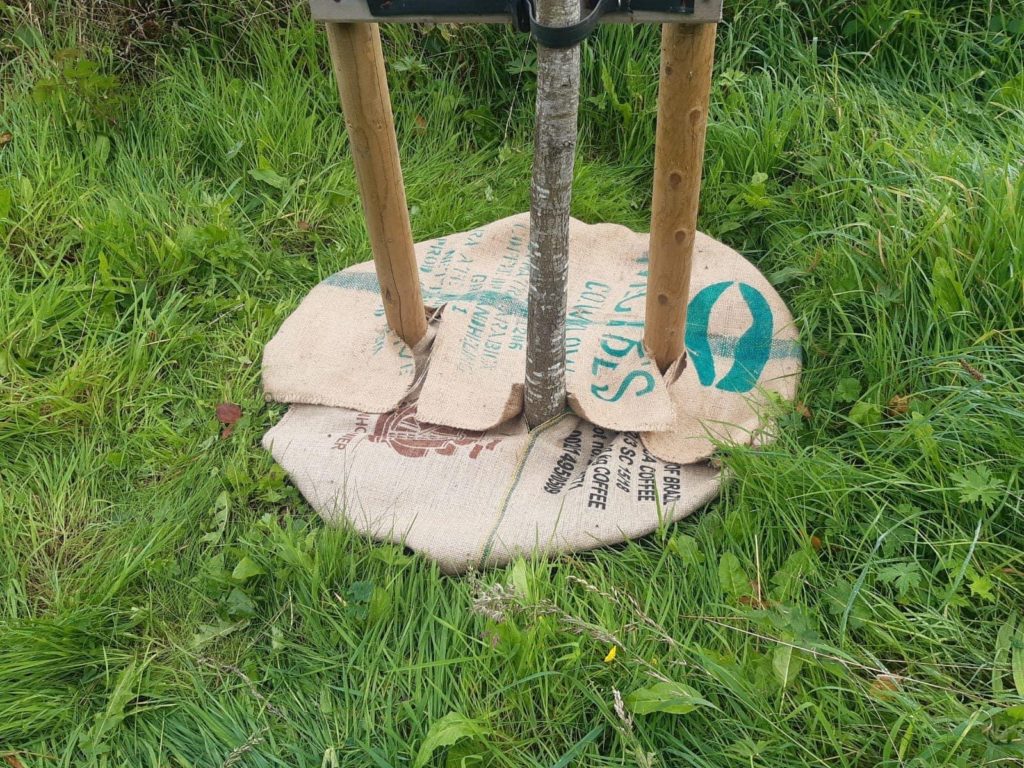
Coffee sacks as weed control
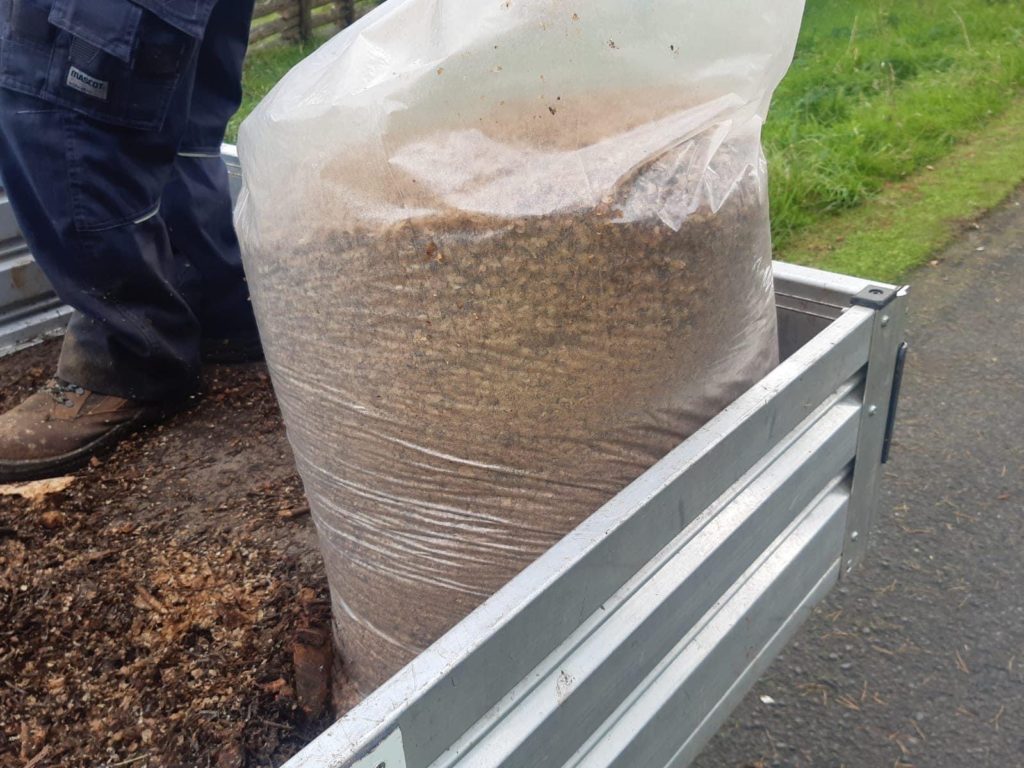
Chaff being collected for use as compost
Offsetting is also a measure McCabe’s have in place, with Tree Nation, a project which plants trees in the tropics where the coffees are grown and where there is a lot of deforestation and loss of biodiversity. “We’re planting upwards of 2000 trees per year now to offset our carbon emissions and we want to increase that as time goes by.
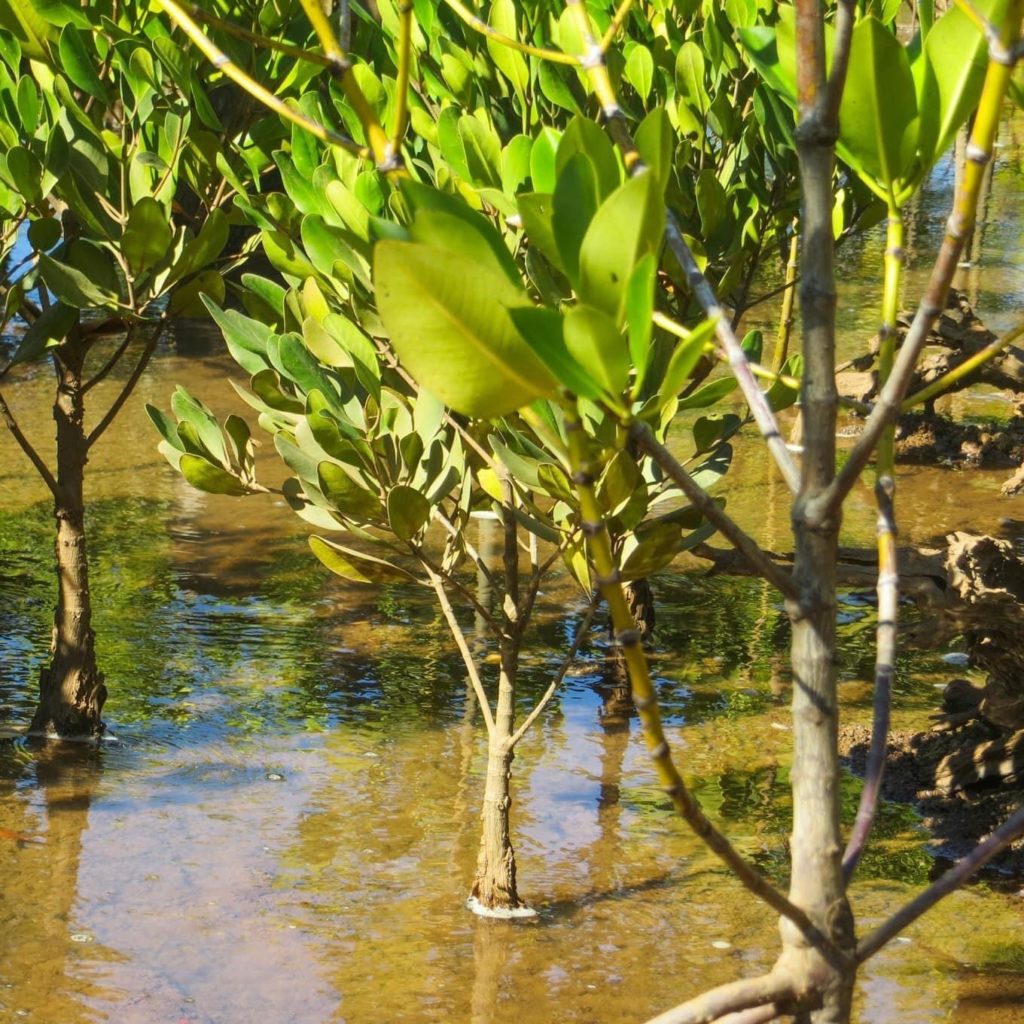
Trees planted as offsets in coffee growing countries
Looking to the future, Stephen thinks we will see more interest in sustainability issues in coffee, “This is what the customer wants, this is what the cafe wants, this is what the business wants. I think we’re going to see a more in-depth approach with sustainable coffee, over the next thirty years”.
Huge thanks to Stephen and the team at McCabe’s for their time! Watch the video interview on @sca_ireland on instagram